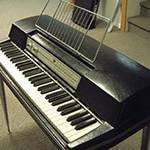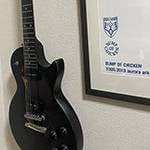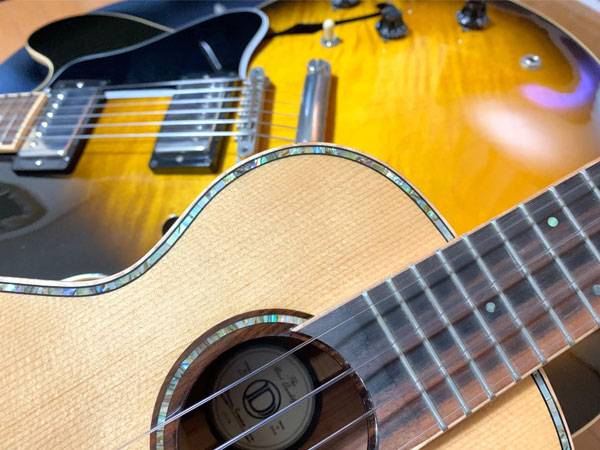
This time, I would like to share my thoughts on a topic that’s often debated: If someone who plays the ukulele starts learning guitar, can they play it right away? And conversely, If someone who plays the guitar starts learning ukulele, can they play it easily? I hope this helps those who are thinking, “I want to start either ukulele or guitar,” or those who feel, “I’ve gotten decent at one, maybe I’ll try a new instrument!” Let’s start with the conclusion: "Beginners have a slight advantage, but for advanced players, it’s best to treat them as completely different instruments." Here are the reasons why:
For beginners
Let’s define “beginner” as someone who’s gotten to the point of thinking, “I’ve learned the tuning, I can change chords, and it’s fun to play along with tab sheets of my favorite songs!”
If you’re at this level, it doesn’t really matter whether you go from ukulele to guitar or the other way around—you’ll be fine either way. Both instruments share the basic technique of using your left hand to press down the chords or notes and your right hand to strum or pick the chords.
Though there are some differences in how the strings feel and the strumming technique, you’ll definitely have a head start compared to someone with no experience at all. And you’ll get used to the difference in number of strings when reading tablature pretty quickly.
For example, the C chord on ukulele is played by pressing the 3rd fret of the 1st string.
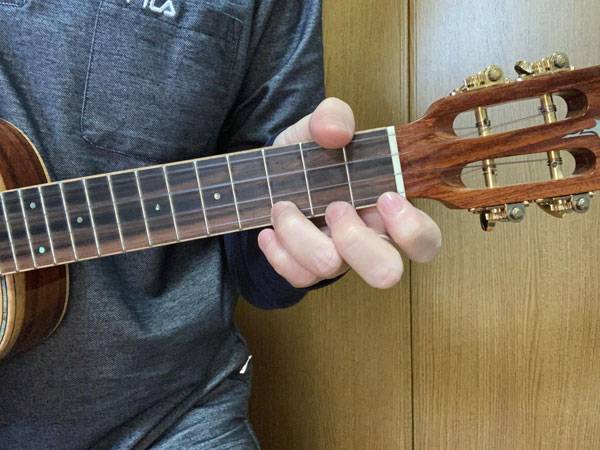
The C chord on the guitar requires you to press three places: 5th string 3rd fret, 4th string 2nd fret, and 2nd string 1st fret.
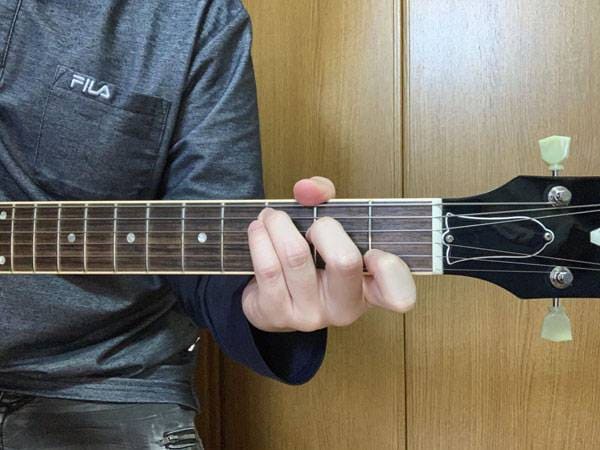
In comparison, the C chord on the ukulele only needs one finger on the 1st string 3rd fret—definitely simpler. But for Em7, the guitar has the easier version. On ukulele, you press both the 3rd string 2nd fret and the 1st string 2nd fret.
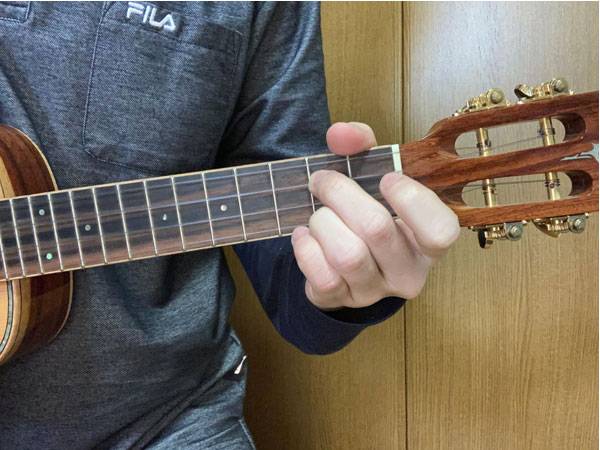
On guitar, it’s just pressing the 5th string 2nd fret.
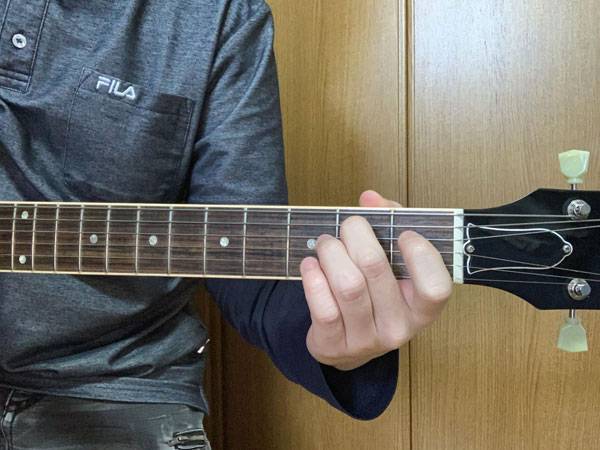
With just 4 to 6 common chords like C, G, Am, and so on, you can already play a bunch of songs. Think of classics like “Stand By Me” or “Take Me Home, Country Roads”.
When someone who started with ukulele switches to guitar, they’re often amazed by the rich, full sound that includes both low and high tones. The power of strumming six strings with a pick is something ukulele can’t quite match.
On the flip side, someone coming from guitar to ukulele is usually struck by its light, clear sound. Techniques like using your thumb for strumming or fingerpicking, which is uncommon on guitar, can feel strange at first, but they become quite addictive once you get used to them.
Try to see the differences between the two as positives. With that mindset, you’ll be able to enjoy playing both guitar and ukulele.
For Advanced Players
Let’s define an advanced player as someone who perfectly understands the fretboard, can not only play covers but also improvise to some extent, and enjoys incorporating various techniques into their playing.
I’ll share my own experience and the opinions of professional musicians around me. I started playing the ukulele after playing the guitar. The first thing that felt really strange to me was "On the ukulele, the 4th string is not the lowest note."
*The standard tuning of a ukulele is G, C, E, A from the 4th string. The 3rd string, C, is actually the lowest. That just felt wrong (no offense). When practicing scales and coming back down from the 1st string, the 4th string suddenly jumps in pitch. It really threw me off.
Also, the position markers on the fretboard are different between guitars and ukuleles. On guitars, they’re usually at the 3rd, 5th, 7th, 9th, and 12th frets. But on ukuleles, they’re at the 5th, 7th, 10th(!), and 12th frets. Why is there a marker at the 10th fret...?
I made so many mistakes when trying to play in higher positions because of that.
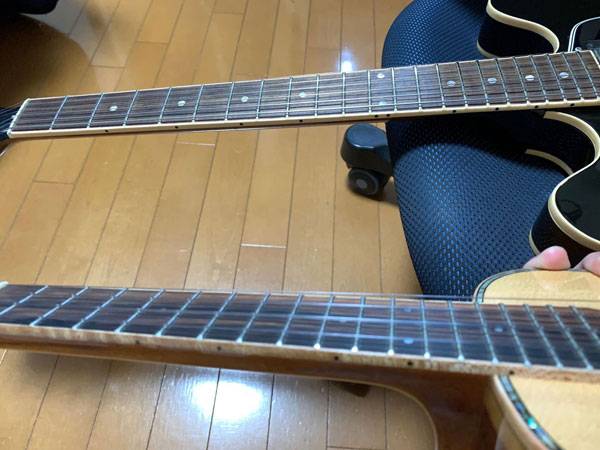
There are also other challenges, such as not being able to apply the concept of 5th and 6th string root chords, or the fact that the shape of a D chord on the guitar is the same as a G chord on the ukulele…
Many people think, “Since I can play guitar, I should be able to apply that knowledge to play the the ukulele!”—but that rarely works out well.
In most cases, it’s actually easier and more effective to treat it as a completely different instrument.
There are many other differences too. For example, ukulele is typically played with fingers on the right hand, not with a pick.
So for guitarists who mainly use picking and don’t often play fingerstyle, it’s often the right hand—not the left—that causes more trouble when transitioning to ukulele.To Summarize
I’ve written about the similarities and differences between the ukulele and guitar.
No matter which one you start with, you’ll have no issue, but if you already play one, it’s best to approach the other as an entirely different instrument. I highly recommend being able to play both.
Taking up the ukulele won’t make you worse at guitar! Being able to play another instrument is nothing but a benefit.
Looking at your main instrument from a new perspective often leads to new discoveries and practice ideas. You'll naturally expand the music you listen to and the genres you can play, which will level up your skills even more in no time.
Each instrument has its strengths. For example, Hawaiian music sounds most natural on the ukulele. Simply playing a C chord instantly gives off a Hawaiian vibe.
On the other hand, genres like hard rock are better suited for the guitar. Playing an Em7 chord with distortion produces exactly the kind of sound people associate with rock.
Of course, you can play rock on the ukulele or Hawaiian music on the guitar, but it often ends up coming across as not bad, but something feels off.
Starter sets for both ukuleles and guitars aren’t that different in price, so just pick one to begin with. Then, at any time, try taking up the other instrument too.
I hope this article was helpful to you. Thank you for reading to the end!
The column “sound & person” is made possible by your contributions.
For more information about submissions, click here.






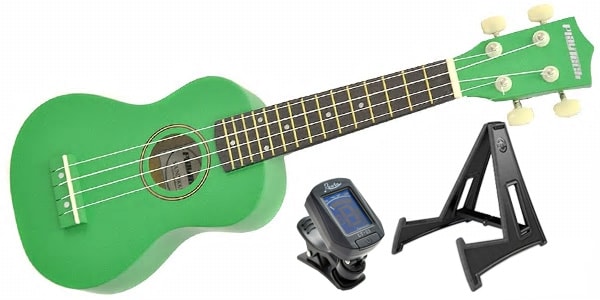
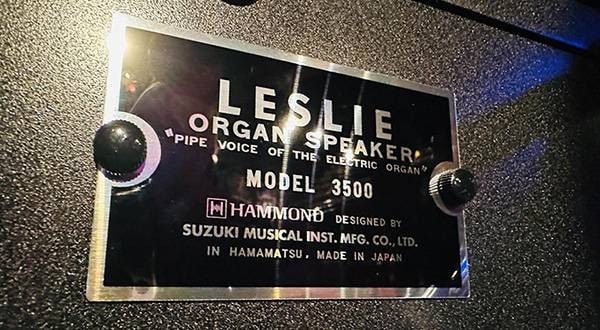
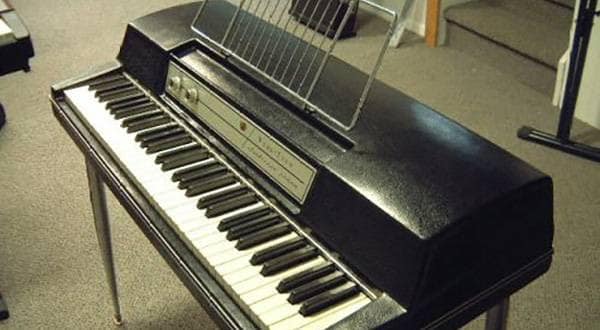
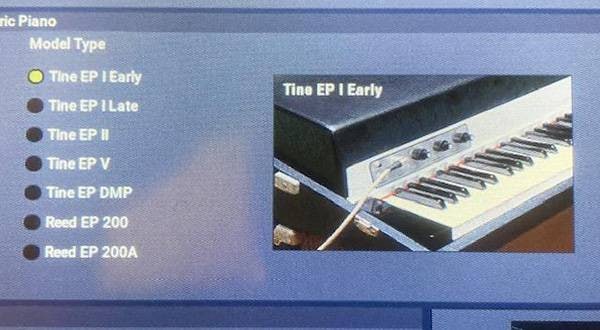
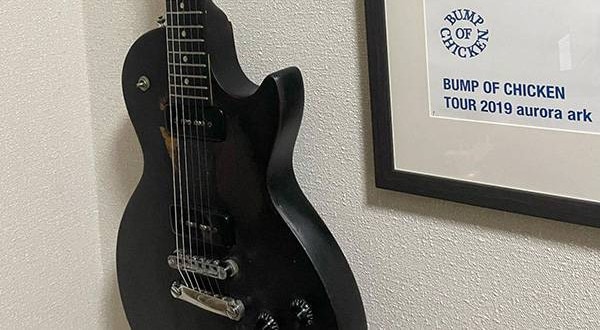
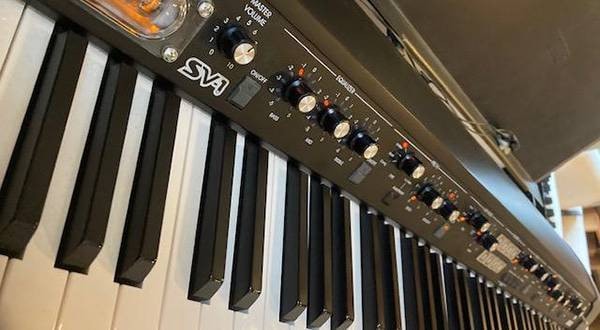
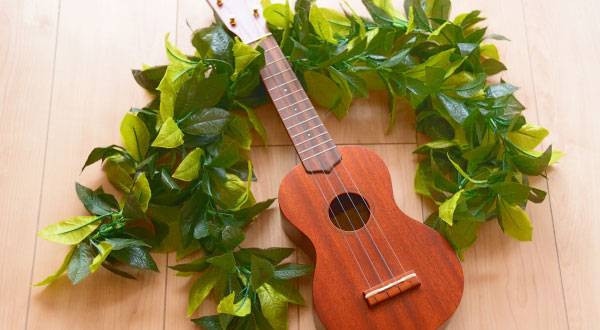
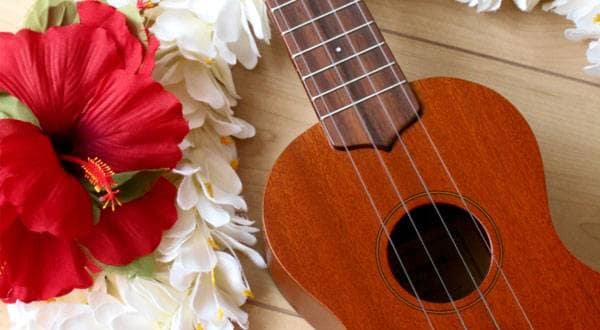
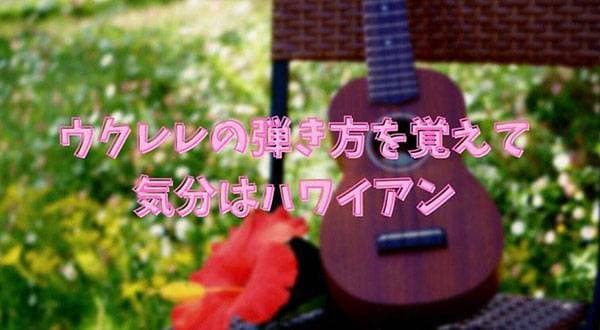
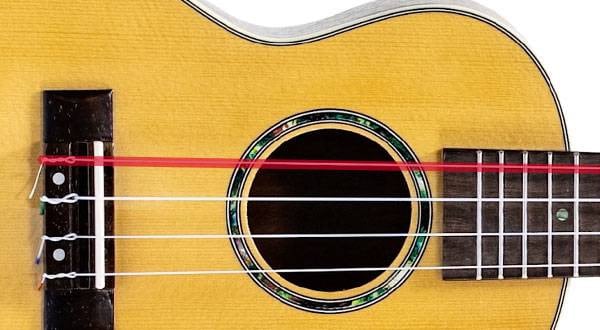
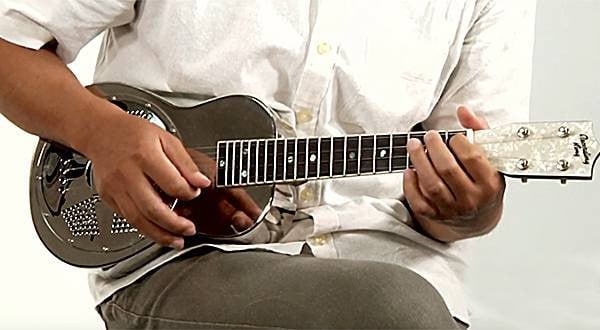
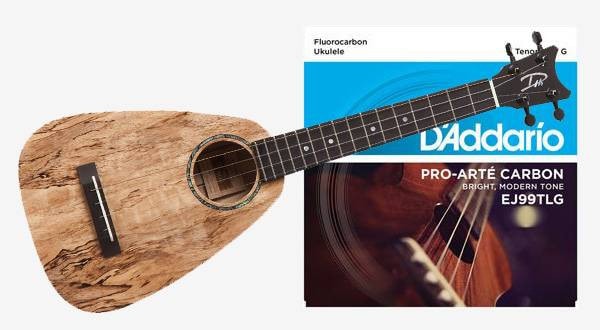
 サウンドハウス社員が選ぶ 『おもしろ商品』はコレだ!
サウンドハウス社員が選ぶ 『おもしろ商品』はコレだ!
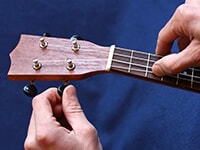 ウクレレのチューニング方法
ウクレレのチューニング方法
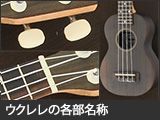 ウクレレの各部名称
ウクレレの各部名称
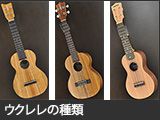 ウクレレの種類
ウクレレの種類
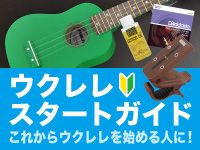 ウクレレスタートガイド
ウクレレスタートガイド
 ウクレレ初心者講座
ウクレレ初心者講座

